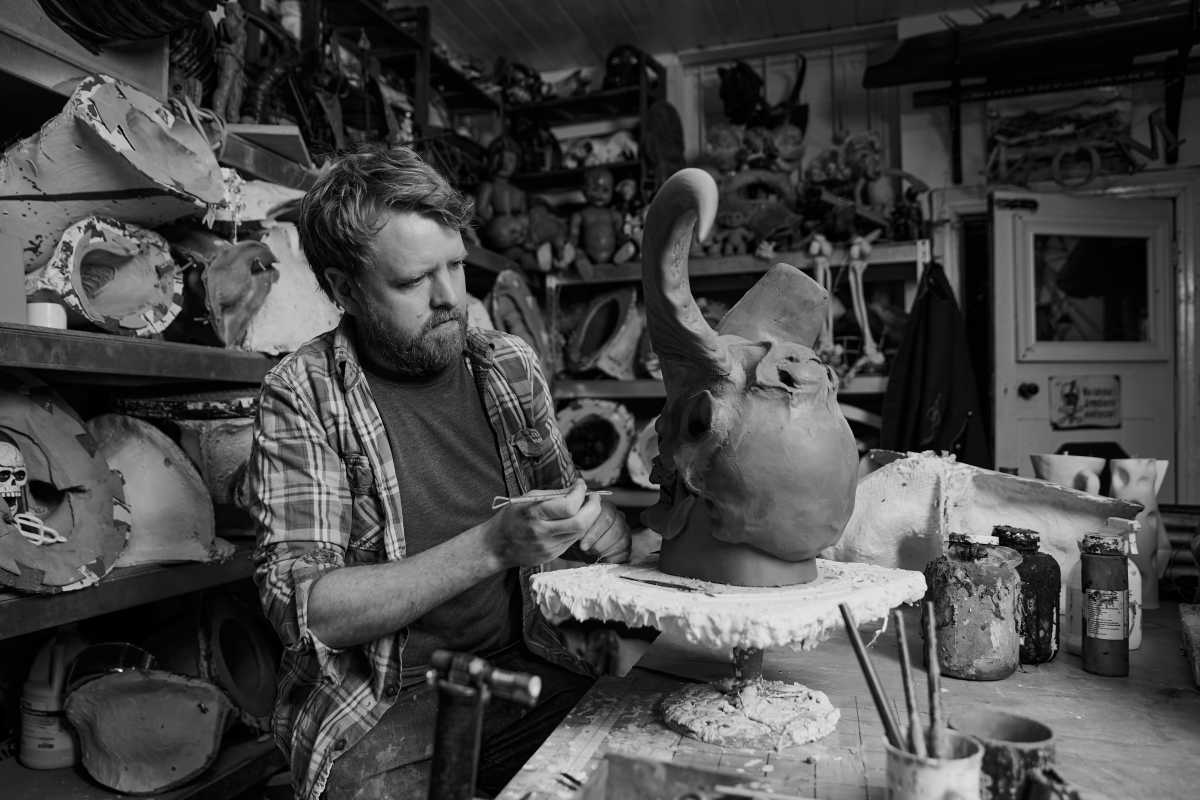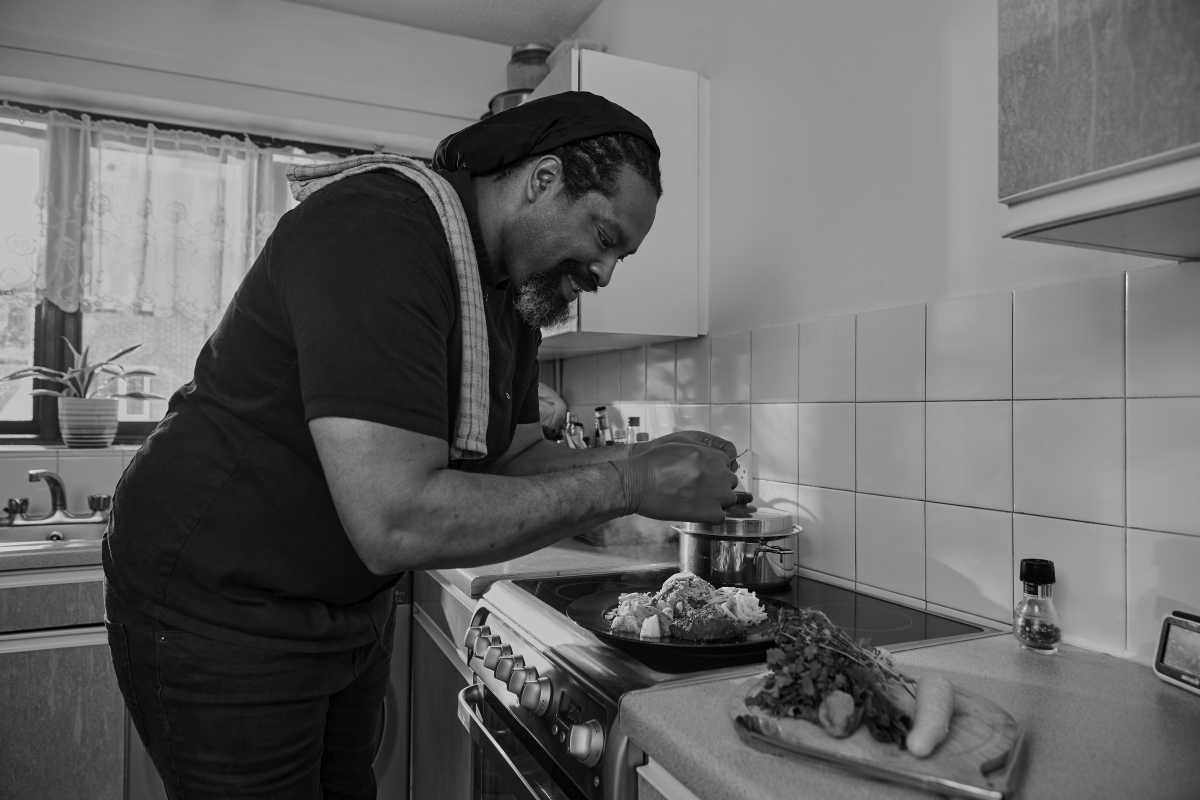“I worked in sales for about six years and although I was quite good at it, I hated every moment and hated every day. At one point I decided to take a break and go to Australia. When I came back, I knew that I didn’t want to go back to my old career so I started making masks in my parents’ garden shed in Wales.“
After a few months Tom had saved enough money to move to London. He had friends there that were letting a property. When he joined them, he was one of five tenants in the shared house.
He even managed to convince his friends to let him put a shed in the yard, so he bought a shed on Ebay for £200 and ran the business from there.
I convinced some mates to let me buy a shed and erect it in their garden (I didn’t ask the landlady) and my business has grown from there.
While visiting Australia, he recalls seeing someone make some ‘crude latex’ masks, and realised that he could do the same, or better. “I thought to myself, I can do better than that.”
This gave Tom the idea that it could be turned into a business. Coupled with the fact that there was a booming business online and it was something he was really interested in doing, the Ministry of Masks was born. And as he explored it further, he realised that people wanted to buy the stuff he was making.
“It was kind of like...I didn’t want to go back to work and I want to play with clay in my garden shed. The fact that a business grew from that is a surprise really. I’m still in a shed now – but it’s a much bigger shed.”
“You can get a name for yourself on social media. Facebook was really beneficial to generate business as I had quite a large following. I also went to some conventions but first started selling on Ebay. I then moved to Etsy and my business grew at a really fast rate – I had four staff at one point. I was turning over quite a bit with Etsy and pulling my hair out managing people.“
A typical day...
I caught Tom at the end of his Halloween rush so a number of orders had just been shipped. On a typical day, he starts by reviewing his orders, then prioritises them before getting to work – which entails filling a mould with latex then actually producing the masks and painting them.
“For six months of the year I’m creating new things, sculpting, mould making – doing things like that.”
80% of Tom’s customers are American. He sells a lot to Canada as well. “Halloween is obviously a massive season there, much bigger than it is here so that’s a big market for me.”
“I’m really interested in Historical masks so I do a lot of plague masks. I’m also interested in medieval masks. These are more accessories to your head rather than masks.”
Tom describes how a lot of people think of a mask as a silicone piece that changes your persona, that animates your face, whereas his masks are more accessories to your head.
They are not trying to change what you are – you’re obviously wearing a mask but it’s more of an accessory.
I asked Tom about the piece he is most proud of. “My Reaper” he replied. “It’s simple but I’ve sold hundreds of them. Every time I make one, I’m really impressed by it. It’s easy to make and people like them.”
There is a general interest in ‘Plague Doctor’ masks Tom says. He’s made a dozen of Plague masks but the “The Reaper” seems to be the most popular.
He sells most of his masks straight to consumers. When chatting with him he was working on something for a customer in Hong Kong – it’s actually quite a big order but usually it’s straight to consumers.
He also does commissions for film and TV where he makes one-offs, bespoke designs. Some of these include the Netflix series ‘The Order’ and an up-and-coming Simon Pegg production.
But his bread and butter is selling masks to consumers.
The tough part
“I’m dyslexic so my tax was always something that was worrying until I had to pay my first bill – and then it didn’t worry me so much. Generally, if you haven't run a business before, everyone tells you to be mindful of your tax and get an accountant.”
Tom’s biggest issue is workspace because he is in London – hence the shed. “I’m in a bigger shed, which I’m renting in Lewisham (they have lower commercial property rent) so I have a big shed and I’m not paying too much for it.”
He’s moved studios about six times – and consequently been evicted twice (but only because properties were sold).
“One of the issues I face with my business is that it’s seasonal. It has peaks of being really busy and then times when it’s quiet so it was hard to keep people in work. My staff were freelancers and were paid based on output but given the nature of the business, it was difficult to maintain them.”
Tom’s busiest in the run up to Halloween, Christmas and New Year as well as the Festival Season. “It’s quite slow between January and April and May but then it creeps up again. You’re counting your change at those points. But I like the quiet months because I can be creative and make things.”
Tom also states that managing emails/admin and orders and time management is generally an issue. He has two children under three so time is split between them and the business.
“When I started my business was my priority but now my business has suffered slightly.”
He recently got an order of more than 100 masks. He’s now working on his own, but had four people working for him before but was worse off.
The best part
I love having flexibility with my kids, I don’t have a boss, I can pick them up from nursery, I can take them to the park if the sun is shining – and being able to do a job that is creative.




